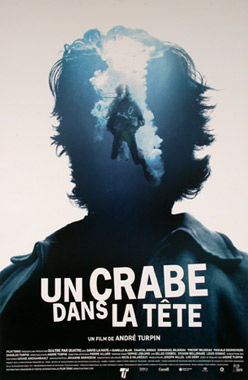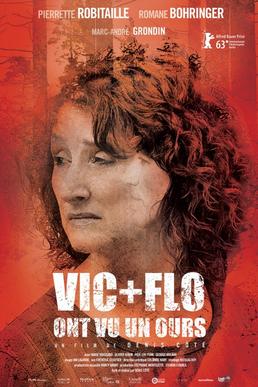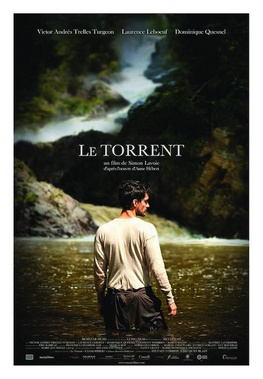Helen Shaver is a Canadian actress and film and television director. After appearing in a number of Canadian movies, she received a Canadian Screen Award for Best Actress for her performance in the romantic drama In Praise of Older Women (1978). She later appeared in the films The Amityville Horror (1979), The Osterman Weekend (1983), Desert Hearts (1985), The Color of Money (1986), The Believers (1987), The Craft (1996),Tremors 2: Aftershocks (1996) and Down River (2013). She received another Canadian Screen Award for Best Actress nomination for the 1986 drama film Lost!, and won a Best Supporting Actress for We All Fall Down (2000). Shaver also starred in some short-lived television series, including United States (1980) and Jessica Novak (1981), and from 1996 to 1999 starred in the Showtime horror series, Poltergeist: The Legacy, for which she received a Saturn Award for Best Actress on Television nomination.
The John Dunning Best First Feature Award is a special Canadian film award, presented by the Academy of Canadian Cinema and Television to the year's best feature film by a first-time film director. Under the earlier names Claude Jutra Award and Canadian Screen Award for Best First Feature, the award has been presented since the 14th Genie Awards in 1993.

Maelström is a 2000 Canadian absurdist psychological drama film written and directed by Denis Villeneuve. It stars Marie-Josée Croze as a depressed young businesswoman who becomes romantically involved with the son of a man she killed in a hit-and-run accident. Employing fantasy and comedic elements, Maelström is narrated by a talking fish.

A Sunday in Kigali is a 2006 Canadian feature film set during the Rwandan genocide. It is directed by Robert Favreau and based on the novel A Sunday at the Pool in Kigali by Gil Courtemanche.
David La Haye is a Canadian actor.

Soft Shell Man is a Québécois film, directed by André Turpin released in 2001.

Yellowknife is a 2002 Canadian film directed by Rodrigue Jean and starring Sébastien Huberdeau, Hélène Florent, Patsy Gallant, Philippe Clément, Brad Mann, Todd Mann and Glen Gould.
Rodrigue Jean is a Canadian film director, screenwriter, and producer of Acadian origin. He has been a theatre director, dancer and choreographer.
The Left-Hand Side of the Fridge was the first full-length feature film by Canadian film director Philippe Falardeau, released in 2000.

Vic and Flo Saw a Bear is a 2013 Canadian drama film directed by Denis Côté. The film premiered in competition at the 63rd Berlin International Film Festival, where it won the Alfred Bauer Prize.
Québec-Montréal is a 2002 Canadian comedy film, directed by Ricardo Trogi.
Not Me! is a Canadian drama film, released in 1996. The full-length directorial debut of Pierre Gang, the screenplay had been written by Gang a full 10 years before he was able to make the film.
André Turpin is a French Canadian cinematographer, film director, and screenwriter.
The Prix Iris for Best Film is an annual film award presented Québec Cinéma as part of its Prix Iris program, to honour the year's best film made within the Cinema of Quebec.

The Torrent is a Canadian drama film, directed by Simon Lavoie and released in 2012. An adaptation of Anne Hébert's novella Le Torrent, the film centres on the life of François, a man who was raised by his devoutly religious and abusive mother Claudine. Left deaf when his refusal to obey her demand that he enter the seminary to become a Catholic priest led Claudine to hit him on the head, he has continued to live in rural isolation, and struggles to establish human connection when he purchases Amica, a woman being sold into slavery who is eerily similar to his mother in her youth.
Atomic Saké is a 1999 Canadian short drama film, directed by Louise Archambault. The film centres on Ariane, Véronique and Mathilde, three female friends talking over drinks who decide to reveal their innermost secrets, including Mathilde's revelation that she is in love with Ariane and tries to come out to her.
Marie-Jo Thério is a Canadian actress and musician. She is most noted for her performance in the 1999 film Full Blast, for which she won the Jutra Award for Best Supporting Actress at the 3rd Jutra Awards in 2001.
The Hat is a Canadian animated short film, directed by Michèle Cournoyer and released in 1999. Told entirely without dialogue, the film centres on an exotic dancer's flashbacks to childhood memories of sexual abuse.
Hans Peter Strobl was an Austrian-Canadian sound engineer in film and television. He was most noted as a five-time Genie Award winner for Best Overall Sound, and a six-time Jutra Award winner for Best Sound.

The Three Madeleines is a Canadian drama film, directed by Guylaine Dionne and released in 2000. The film centres on a road trip undertaken by Marie-Madeleine with Mado, her birth mother with whom she has recently been reunited after being given up for adoption in infancy, and Madeleine, Marie-Madeleine's young daughter.







